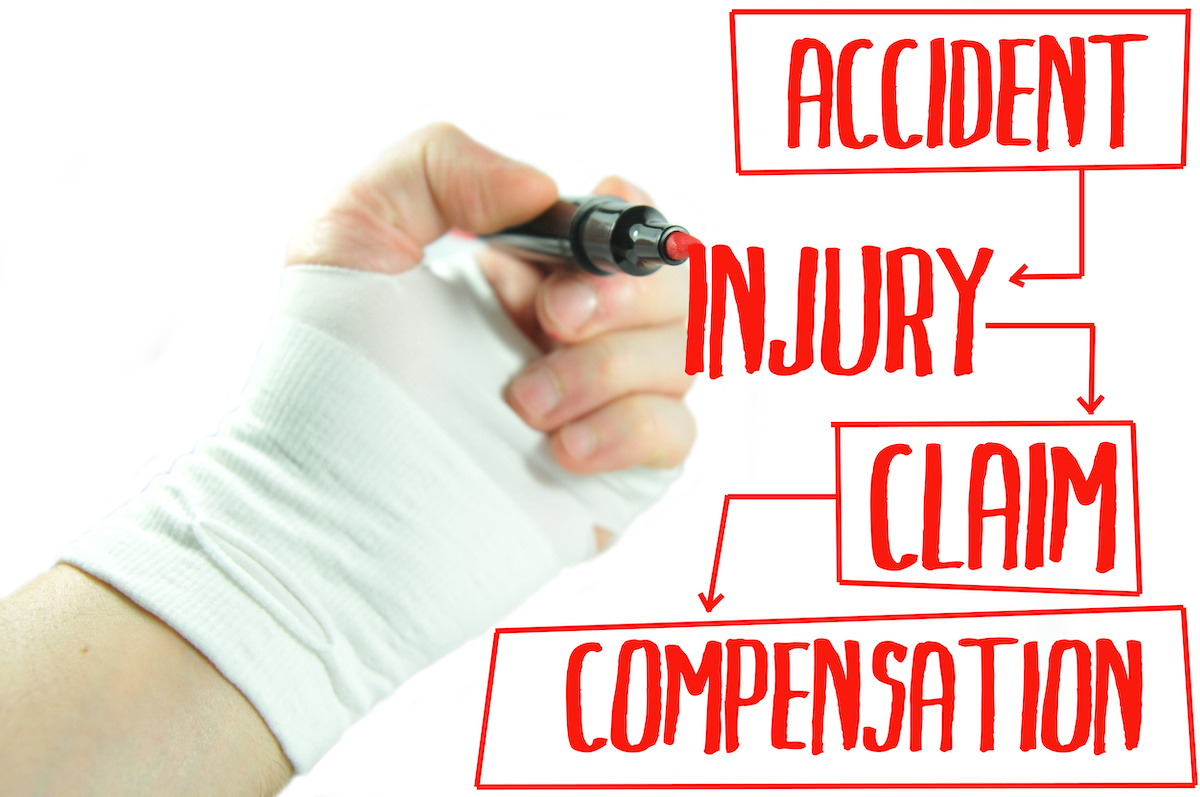Have you been injured in a car, motorcycle, or truck accident? The aftermath can be overwhelming, leaving you facing medical bills, lost wages, and the daunting task of dealing with insurance companies. This comprehensive guide will walk you through the process of understanding personal injury law, protecting your rights, and securing the compensation you deserve.
Understanding Personal Injury Law
What is Personal Injury Law?
Personal injury law deals with legal claims for compensation when someone suffers physical or emotional harm due to another person's negligence or wrongdoing. These claims, often called liability claims, aim to hold responsible parties accountable for the damages they cause. Understanding the nuances of personal injury law, including aspects like comparative negligence, is crucial for pursuing your claim effectively. This area of law covers a wide range of accidents, from car accidents to slip and falls, and requires careful investigation to establish liability and damages. A skilled personal injury lawyer can guide you through this complex legal process, ensuring your rights are protected and you receive the maximum compensation you deserve.
Types of Personal Injury Cases
Personal injury cases encompass a broad spectrum of accidents, including auto accidents (car accidents, truck accidents), motorcycle accidents, and pedestrian accidents. Each type of accident presents unique challenges and requires specific legal expertise to navigate. The severity of injuries, liability issues, and insurance complexities vary significantly across these cases. Seeking legal counsel from a lawyer specializing in the specific type of accident is crucial for a successful outcome. The more specific your attorney's experience, the more effectively they can handle the intricacies of your case. Your chances of obtaining a fair settlement are often directly tied to choosing the right type of legal representation.
Steps to Take After an Accident
Immediate Actions Post-Accident
Following a car accident, immediate actions are critical for preserving evidence and protecting your claim. Secure the scene safely, call emergency services if needed, and document the accident thoroughly, including taking photos of the damage, gathering witness information, and obtaining the other driver's insurance details. Your detailed accident report will significantly impact any subsequent investigation. Gathering this evidence immediately after the accident while details are fresh is essential. Accurate documentation will protect your claim and ensure that you have a robust defense against the insurance company or other involved parties.
Filing a Claim
After an accident, filing a claim with your insurance company (and the other party's insurance company if applicable) is usually the next step. This process involves providing detailed information about the accident, your injuries, and related expenses. Understand the nuances of your state's no-fault insurance laws and comparative negligence rules, as they influence the claim process and the eventual settlement. Filing a timely claim is crucial for ensuring your rights are protected and that the insurance company cannot unfairly dismiss your case due to procedural shortcomings.

Consulting a Personal Injury Attorney
Consulting a personal injury attorney is crucial for protecting your rights and maximizing your compensation. A lawyer can evaluate your case, explain your legal options, and guide you through the complexities of the legal process. They'll handle negotiations with insurance adjusters, file necessary paperwork, and represent you in court if needed. Early legal consultation can ensure your interests are properly represented from the start, making the whole process significantly smoother and more effective.


Choosing the Right Personal Injury Attorney
What to Look for in a Personal Injury Lawyer
Selecting the right attorney is a crucial decision that significantly impacts the outcome of your case. Look for an attorney with proven experience handling similar cases, a strong track record of success, and excellent communication skills. Their negotiation skills and courtroom presence, if the case goes to trial, are equally important. Consider their familiarity with local laws and regulations to ensure they are well-equipped to navigate the specifics of your case. Researching past case outcomes and client testimonials can provide valuable insight into an attorney's effectiveness.
Questions to Ask During a Consultation
During your initial consultation, ask specific questions about the attorney's experience with similar cases, their fees, their approach to case evaluation, and their expectations for the case's outcome. Understand how legal fees work, and ensure you're comfortable with the terms of your attorney-client agreement. Discuss the potential for settlement and, if necessary, the procedures involved in going to trial. This allows you to weigh the https://search.google.com/local/reviews?placeid=ChIJIYw6cnwTK4cRQuebTbg5X48 potential risks and rewards associated with the legal process.
Understanding Costs and Fees
How Attorney Fees Work
Most personal injury attorneys work on a contingency fee basis, meaning they only receive payment if you win your case. This contingency fee is typically a percentage of the settlement or judgment you receive. Understand the specifics of their fee structure and any associated court costs or expenses. Transparency regarding these costs is crucial to ensure a smooth and efficient legal process. Many attorneys will clearly explain their fee structure upfront, avoiding any ambiguity that could lead to misunderstandings later.
Potential Compensation You Can Expect
The compensation you can expect in a personal injury case varies depending on the specifics of your case, including the severity of your injuries, lost wages, medical expenses, and pain and suffering. An experienced attorney can help you determine the value of your claim and negotiate a fair settlement. This aspect of the process requires a keen understanding of the laws related to damages and compensation. Your attorney can use their experience and knowledge to advocate for you effectively.
Case Outcomes and What to Expect
Settlement vs. Court Verdict
Most personal injury cases are resolved through a settlement negotiation with the insurance company. However, if a settlement cannot be reached, the case may proceed to trial. Understand the implications of both options and discuss your preferences with your attorney. Settlement typically offers a quicker resolution but may not always achieve the maximum potential compensation. Conversely, trials offer the chance to obtain a larger award but involve a longer, more complex process.
Timeline of a Personal Injury Case
The timeline of a personal injury case varies greatly depending on the specifics of the case, its complexity, and the willingness of involved parties to reach an agreement. Expect various stages, including investigation, negotiation, mediation, and possibly arbitration or trial. A skilled attorney can provide a reasonable estimate for your case’s timeline, helping you manage expectations and plan accordingly.
Conclusion:
Navigating the complexities of personal injury law can be challenging, but with the right guidance and legal representation, you can protect your rights and secure the compensation you deserve. Remember to gather evidence, seek legal advice early, and choose an attorney who understands your specific needs. Don't hesitate to contact a qualified personal injury attorney today for a consultation to discuss your case. Your future depends on it.